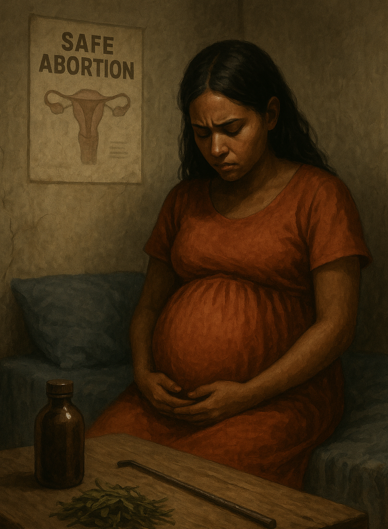

One in 10 women in the country still use harmful and unsafe methods to terminate an unintended pregnancy.
A new report released on Friday showed that a small fraction of women still use unsafe methods such as inserting sharp objects into the vagina, drinking a toxic or caustic substance or taking inappropriate medication to induce abortion.
"One in four women (27 per cent) used a traditional method, such as ingesting herbs, drinking tea, and receiving massages to induce abortion," the report released by the Africa Population and Health Research Center (APHRC) says.
Senior researcher at APHRC, Kenneth Juma, has attributed this to desperation among the women, despite knowing the effect of using such unsafe methods.
According to the report, a survey conducted between April 2023 and May 2024 showed that 72 per cent of women had used at least one method that is recommended by the World Health Organisation.
The report shows that most of the women (62 per cent) reported using medication abortion (MA), either with misoprostol alone or in combination with mifepristone as their abortion method.
About 13 per cent of women reported receiving a uterine evacuation procedure; most likely the Manual Vacuum Aspiration (MVA).
The study was conducted jointly with the Guttmacher Institute and the Ministry of Health between April 2023 and May 2024 through three study components.
According to the report, there were an estimated 2,850,346 pregnancies in Kenya in 2023, of which 1,435,988 were unintended and 792,694 ended in induced abortions.
The study aimed to estimate the incidence of induced abortions, the severity of post-abortion complications, assess health facility capacity to provide PAC and assess the lived experiences of women who have had abortions.
According to the report, 1.4 per cent of women who presented at health facilities for post abortion care experienced a severe maternal outcome.
"This includes five women who died and eight who were in comma," the report says.
The report estimates that 16.4 per cent of cases were classified as potentially life-threatening complications, 28.5 per cent as moderate complications and more than half of the cases (53.7 per cent) were classified as having mild complications.
"There were no differences in complication severity by age and marital status. However, women with lower levels of education and those who experienced food insecurity were more likely to experience the most severe complications."
The report further notes that experiencing delays in accessing post abortion care was associated with more severe outcomes.
These include seeking care at an informal provider before going to the health facility, not having enough money and road infrastructure problems.















